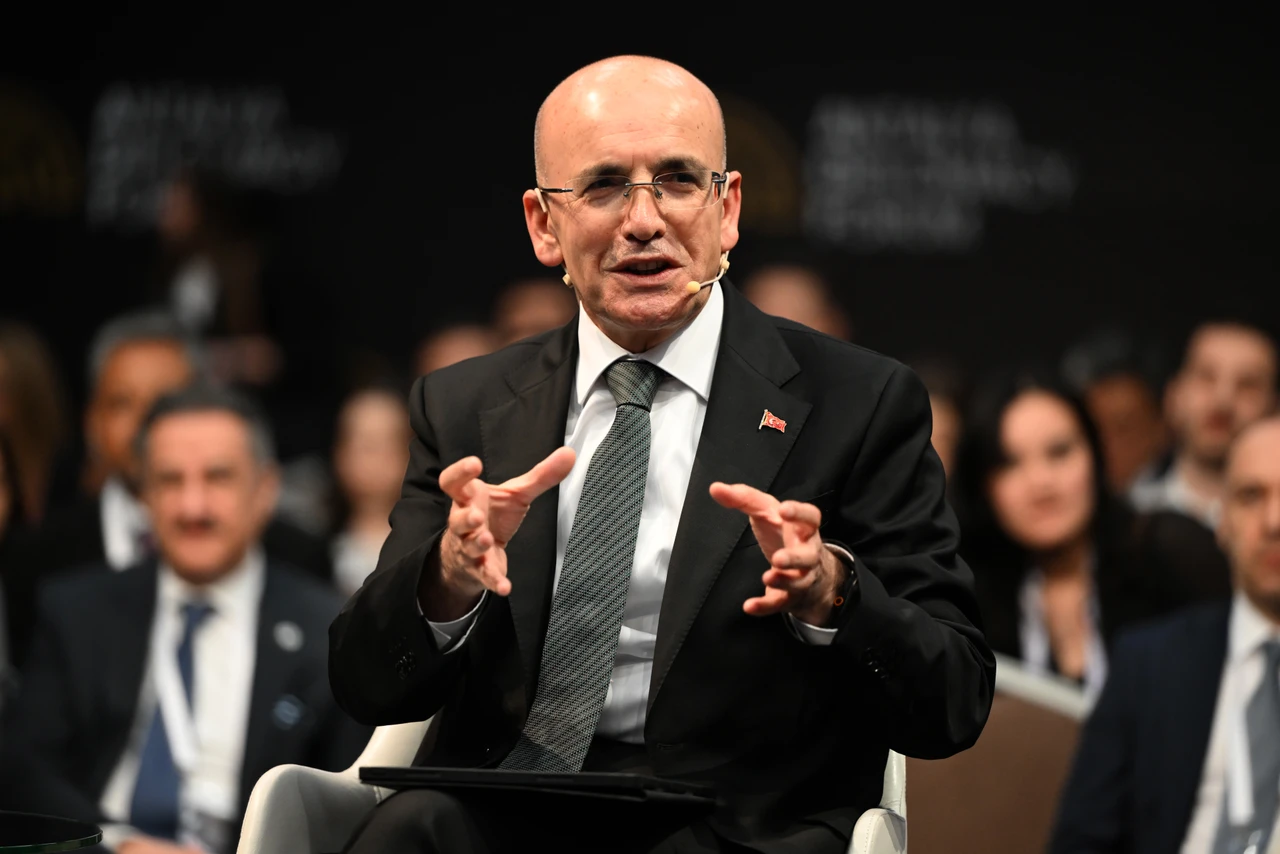From cultural bridge to conflict: Somali entrepreneur’s experience of rising discrimination in Türkiye
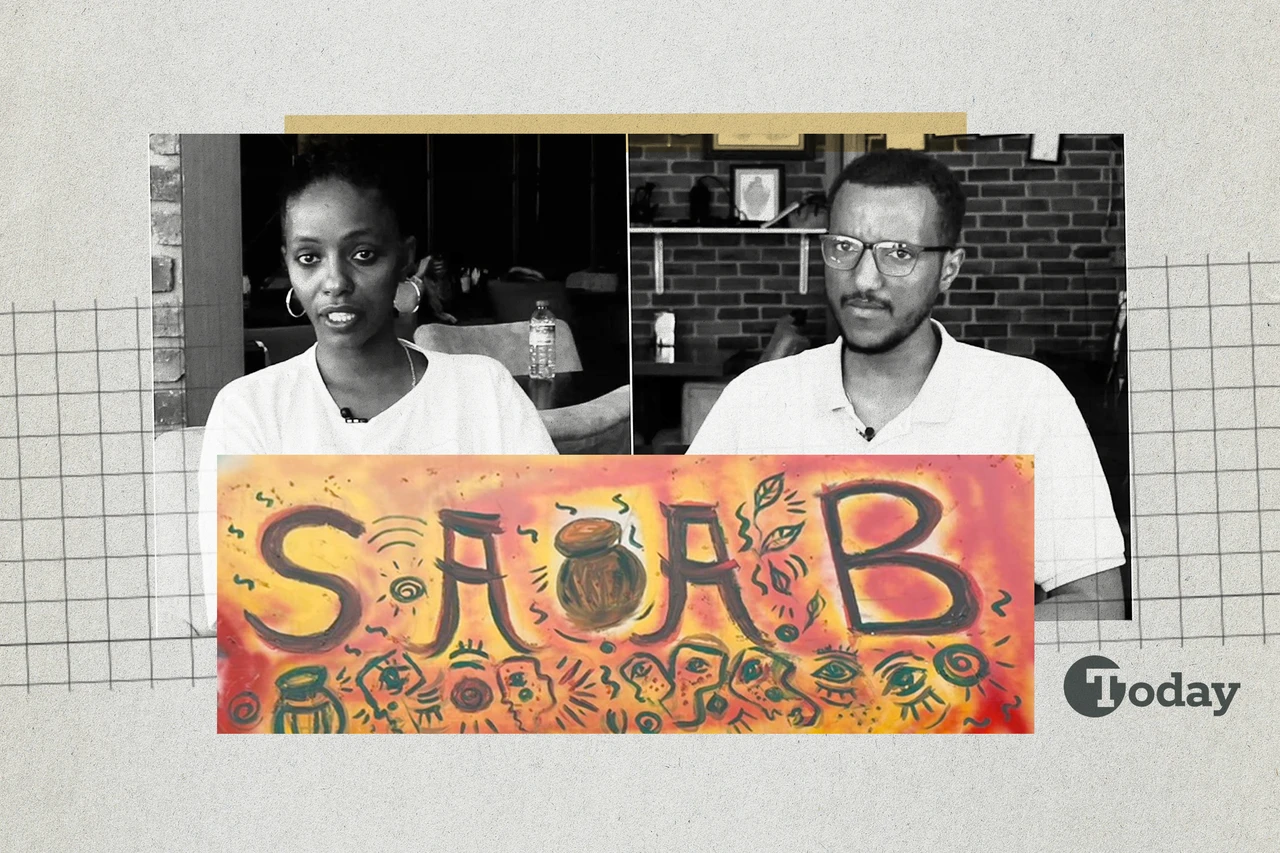 Somalian enterpreneur speaks up about rising discrimination in Türkiye and urges authorities for reform, Oct. 30, 2024. (Collage prepared by Tugce Atmaca)
Somalian enterpreneur speaks up about rising discrimination in Türkiye and urges authorities for reform, Oct. 30, 2024. (Collage prepared by Tugce Atmaca)
Somali Sofrasi (“Somalian Table”) was opened in the heart of Ankara’s Kizilay district as a cultural bridge between Türkiye and East Africa, aiming to connect people through Somali cuisine and tradition.
Somali entrepreneur Mohammed Isa Abdullahi and his partners launched this venture to introduce Somali food in an inviting setting. While initially welcomed by the community, Somali Sofrasi soon faced heavy regulatory pressure, with authorities scrutinizing the restaurant’s identity and branding.
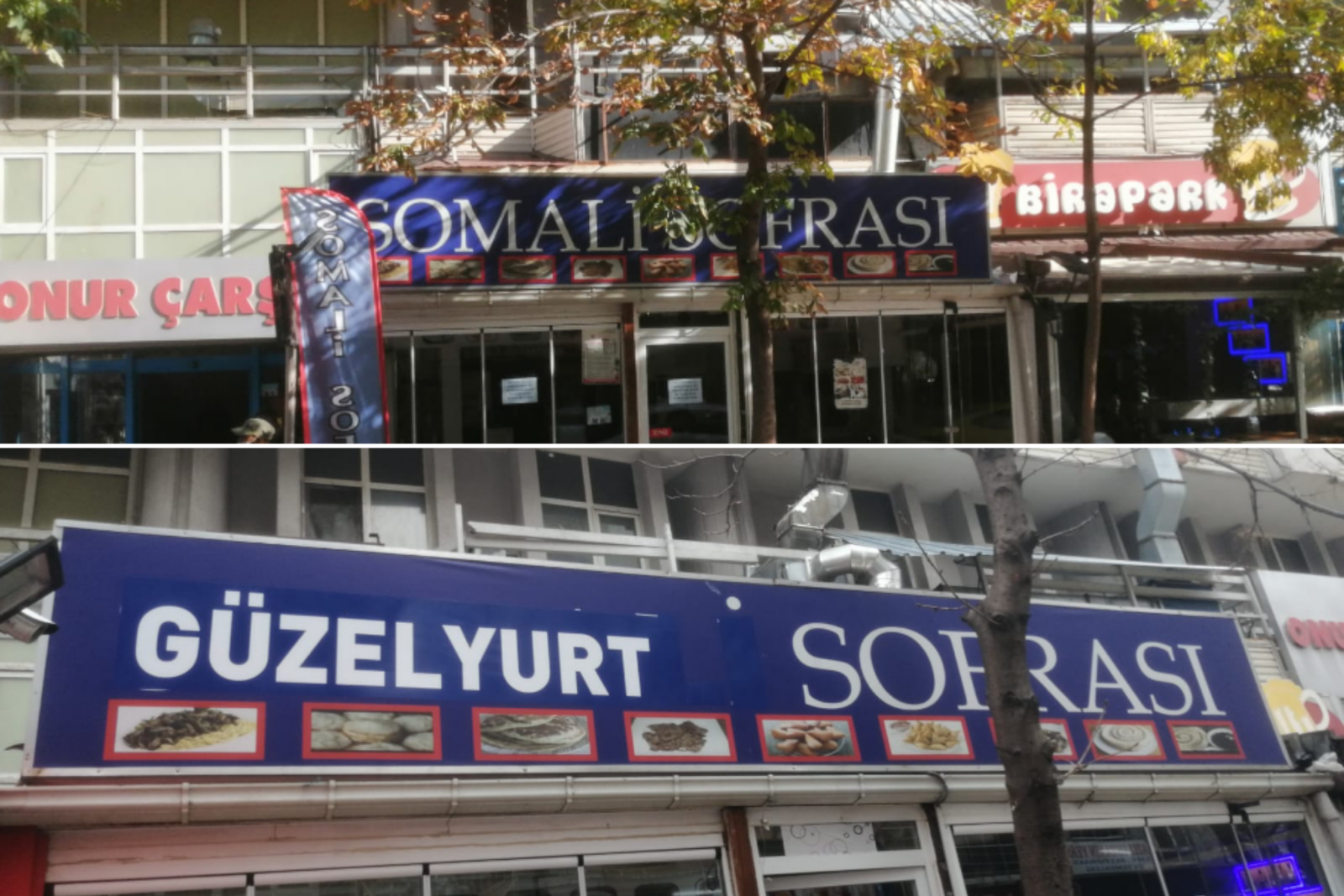
Abdullahi and his team opened a bigger restaurant called SAAB Cafe in September 2019, hoping this change would resolve the issues. Yet, despite their efforts, the scrutiny only grew over time, leading to challenges that ultimately forced SAAB Cafe’s closure.
Since SAAB Cafe’s closure, a new establishment with a non-Turkish name, Verte Coffee House, has opened in the same location, drawing attention to the inconsistency in enforcement and discrimination in Türkiye’s treatment of foreign-owned businesses.
When speaking with Türkiye Today, Abdullahi shared his perspective on these challenges and described the background of the incidents that led to SAAB’s closure, including the rising discrimination in Türkiye.
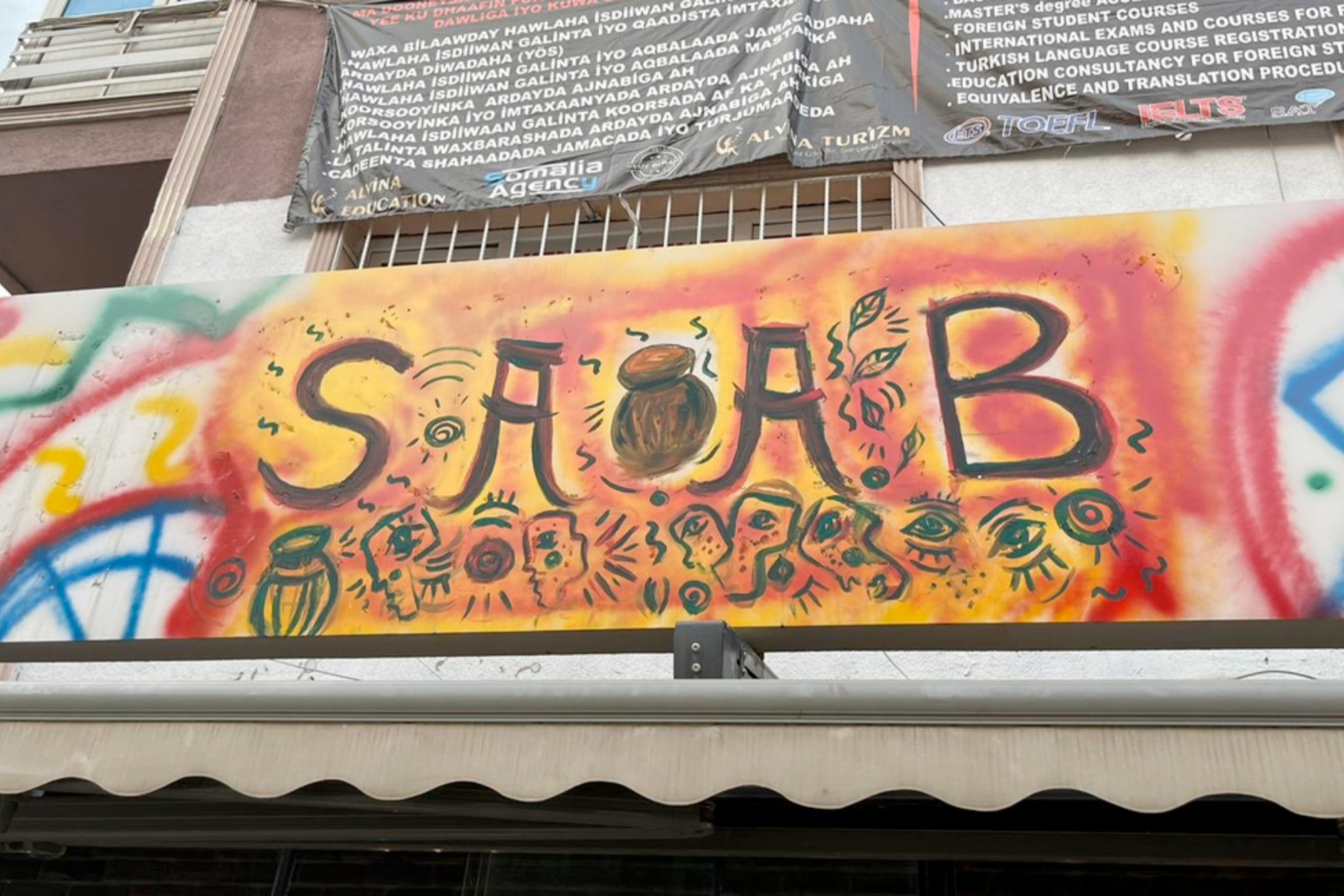
How Somali Sofrasi’s legacy shaped vision for SAAB Cafe in Ankara
By establishing Somali Sofrasi, Mohammed Isa Abdullahi and his partners aimed to share Somali culture with Ankara’s community.
- Somali Sofrasi, their first venture, had served as a cultural bridge, introducing locals to Somali cuisine and creating a space for Somali immigrants.
- However, it wasn’t long before authorities scrutinized the restaurant’s branding and identity, prompting Abdullahi and his team to first change the name to “Guzelyurt Sofrasi” and then to reimagine their vision in a new format.
In 2019, they opened as SAAB Cafe. Speaking of his vision for SAAB, Mohamed said, “I wanted to create a cultural center, a place where people could connect and feel welcome.”
The redesign included carefully selected decor from Ethiopia and Somalia, along with locally crafted products and imported coffee from East Africa. These elements combined to create an authentic experience, blending traditional Somali dishes with the ambiance of East African artistry.
However, even as SAAB Cafe thrived, its journey took an unexpected turn as authorities began intensifying their focus on the cafe’s operations.
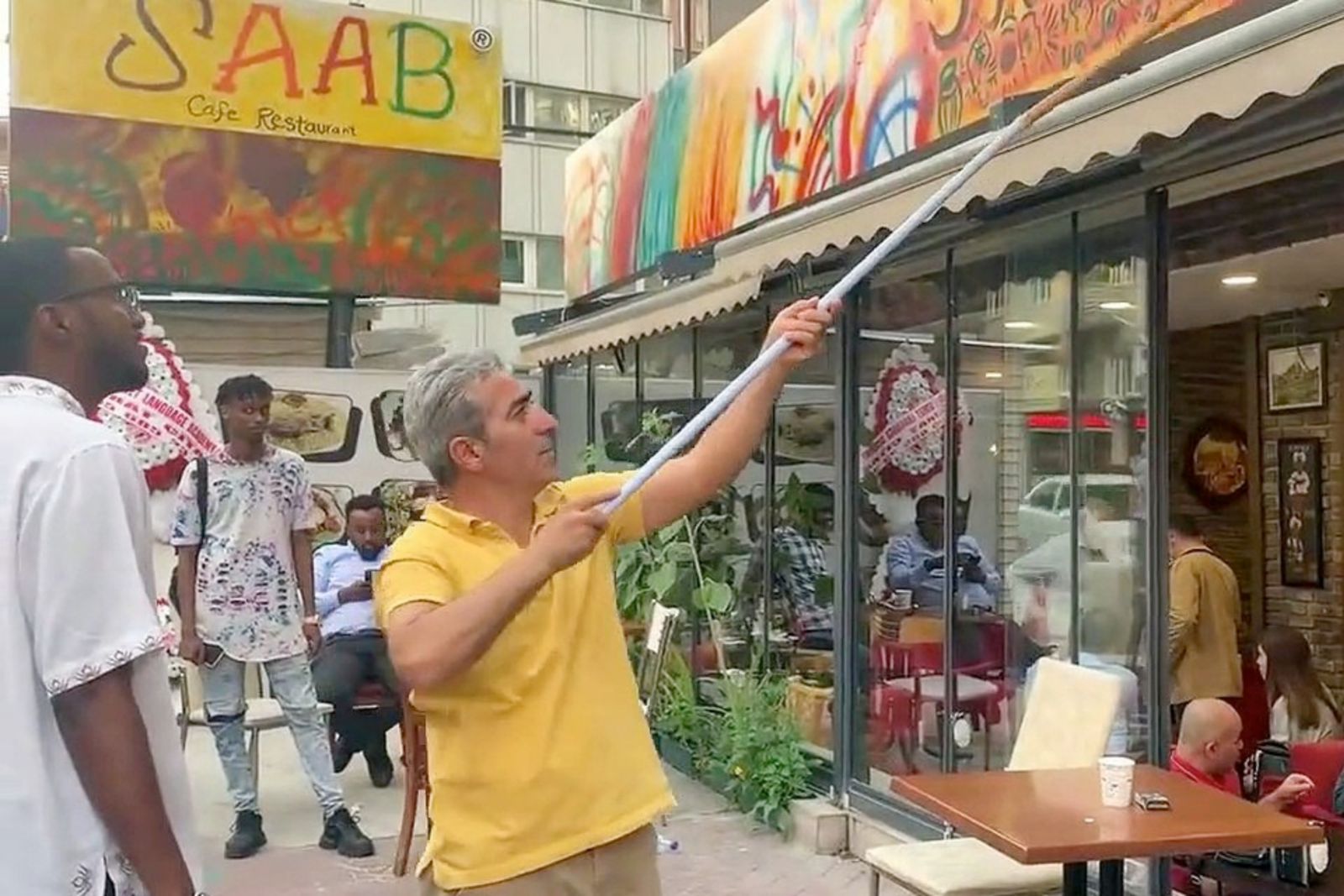
Early encounters with regulatory scrutiny show rising discrimination in Türkiye
While SAAB Cafe initially attracted both Somali patrons and curious locals, regulatory challenges soon began to escalate. Abdullahi recounted that the scrutiny started gradually, with occasional visits from police officers following the lifting of COVID-19 restrictions, but eventually became relentless by 2022.
- Signage conflict: The cafe’s signboard, displaying red, yellow and green, drew attention from authorities. They claimed these colors posed a security risk due to their resemblance to Kurdish separatist groups’ symbols. “We wanted our signboard to reflect our identity and culture,” Abdullahi said. Despite this, he was eventually forced to repaint it plain white, a move he felt was a direct result of discrimination in Türkiye. Co-owner Mesaret Karakaya recalled one officer questioning, “What does Saab mean?” Karakaya clarified, “It’s a car brand and, in our language, it also means ‘box.’”
- Escalating police presence: Police visits intensified, with officers conducting identity checks on customers. Customers from Africa were particularly affected, with some reportedly taken out for questioning. “They would come in, ask for IDs, and sometimes take people outside to their cars,” Abdullahi explained, noting the impact on his business as customers began to feel uneasy and experience discrimination in Türkiye.
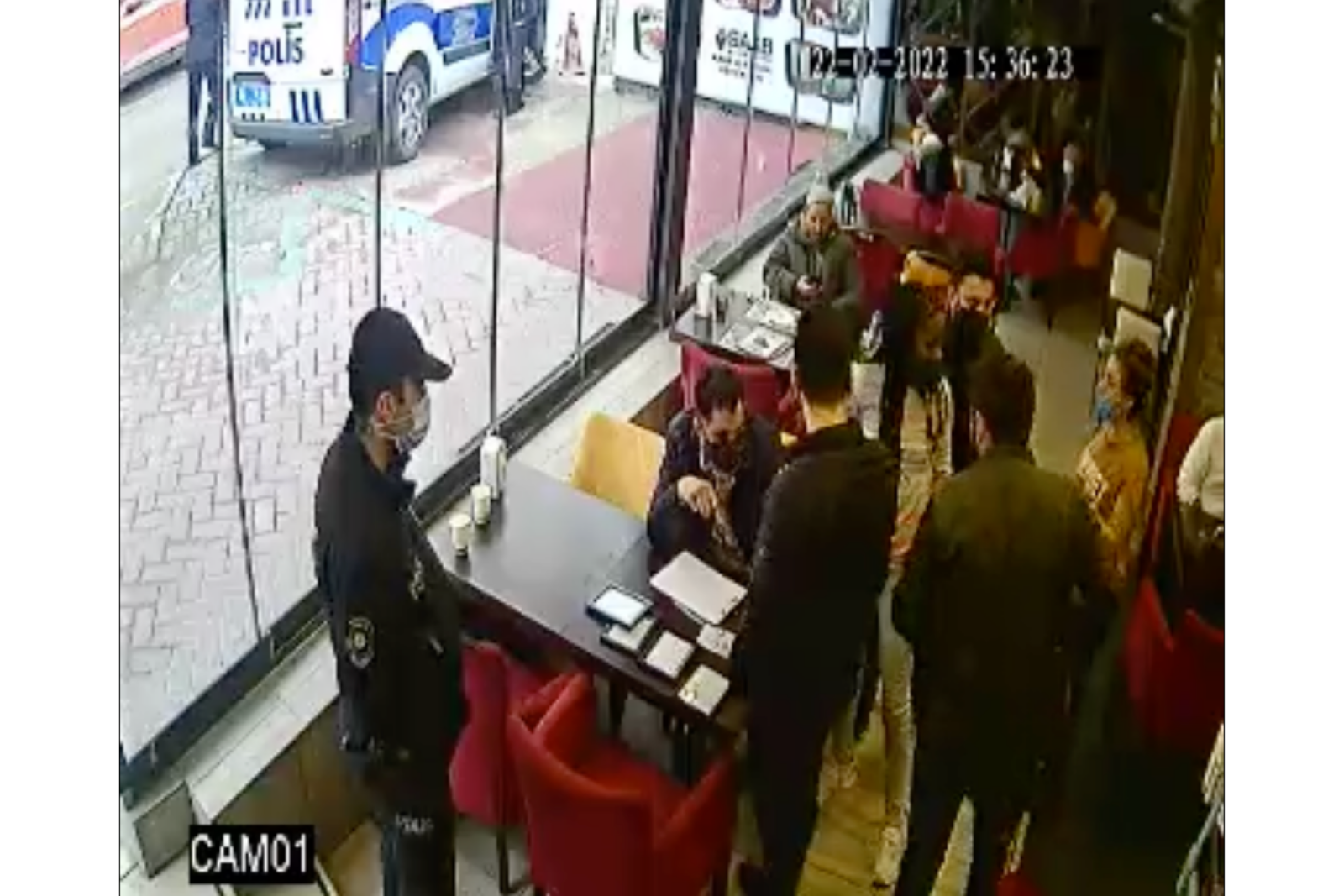
- Attempted outreach: Hoping to resolve the issue, Abdullahi contacted the Ankara governor’s office. His efforts, however, seemed to backfire. “The police came back, asking if I was the one who complained,” he recalled, realizing that his complaint had brought further attention to the cafe he recalled, realizing that his complaint had brought further attention to the cafe and signaled the increasing discrimination in Türkiye.
- Shift in atmosphere: The growing police presence transformed the welcoming space Abdullahi and Karakaya had envisioned. What was meant to be a center for cross-cultural exchange now felt tense and monitored. Customers grew hesitant, and the original atmosphere of the cafe began to change.
These encounters marked the beginning of a prolonged struggle, as Abdullahi and his team tried to keep SAAB Cafe open amidst pressures that felt like consequences of rising discrimination in Türkiye rather than on regulatory measures.
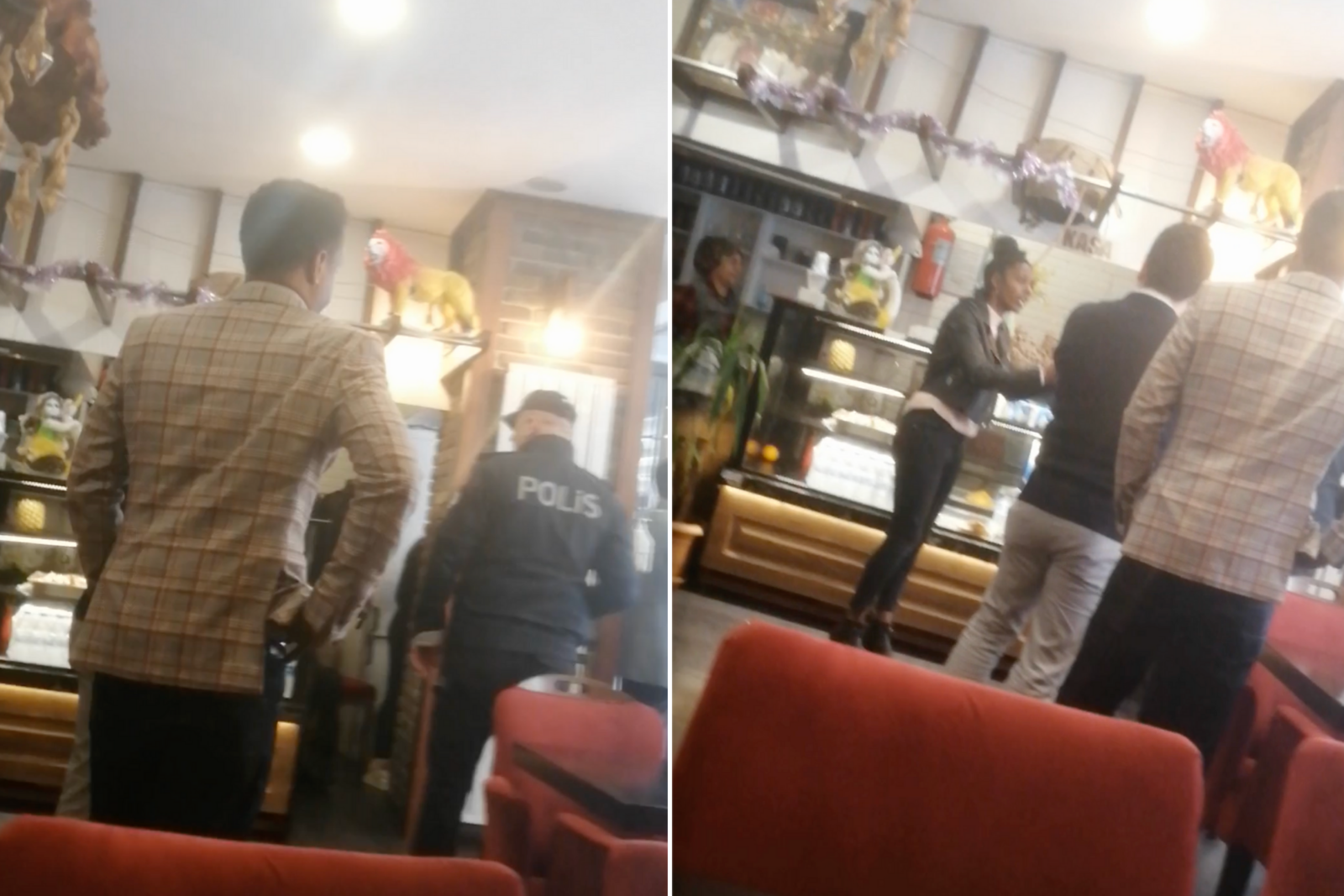
From resilience to resignation: Final pressures that forced SAAB Cafe to close
As Abdullahi and his team grappled with increasing police presence and continuous inspections, it became clear that SAAB Cafe’s future was under threat. Despite meeting various demands, such as changing the colors of the cafe’s signboard, the pressure from authorities only intensified, which Mohamed perceived as a clear sign of discrimination in Türkiye against businesses owned by people of African origins.
“No matter what we did, the pressure didn’t stop,” Abdullahi explained, describing how police raised new issues with the cafe’s non-Turkish name and scrutinized every operational detail during repeated inspections.
The pressure escalated further following Abdullahi’s complaints to government offices, as he found himself repeatedly taken in by police.
They would take me to the police station, hold me for 5-6 hours, then let me go, only to call me back. The officers told me directly, ‘We don’t want you here. I’ll get your shop shut down; I’ll have you deported,’ but I was determined to defend my rights.
Mohammed Isa Abdullahi
He filed complaints with the Turkish Parliament, CIMER (Türkiye’s Presidential Communication Center), the Directorate General of Migration Management, and local police. Yet, he received little support. “Everywhere, they told me it was just ‘routine checks,’” he shared, referring to the lack of response he was sure that these actions were rooted in discrimination in Türkiye.
Reflecting on the experience, he stated, “Even with thousands of permits, no business could survive such routine oppression.”
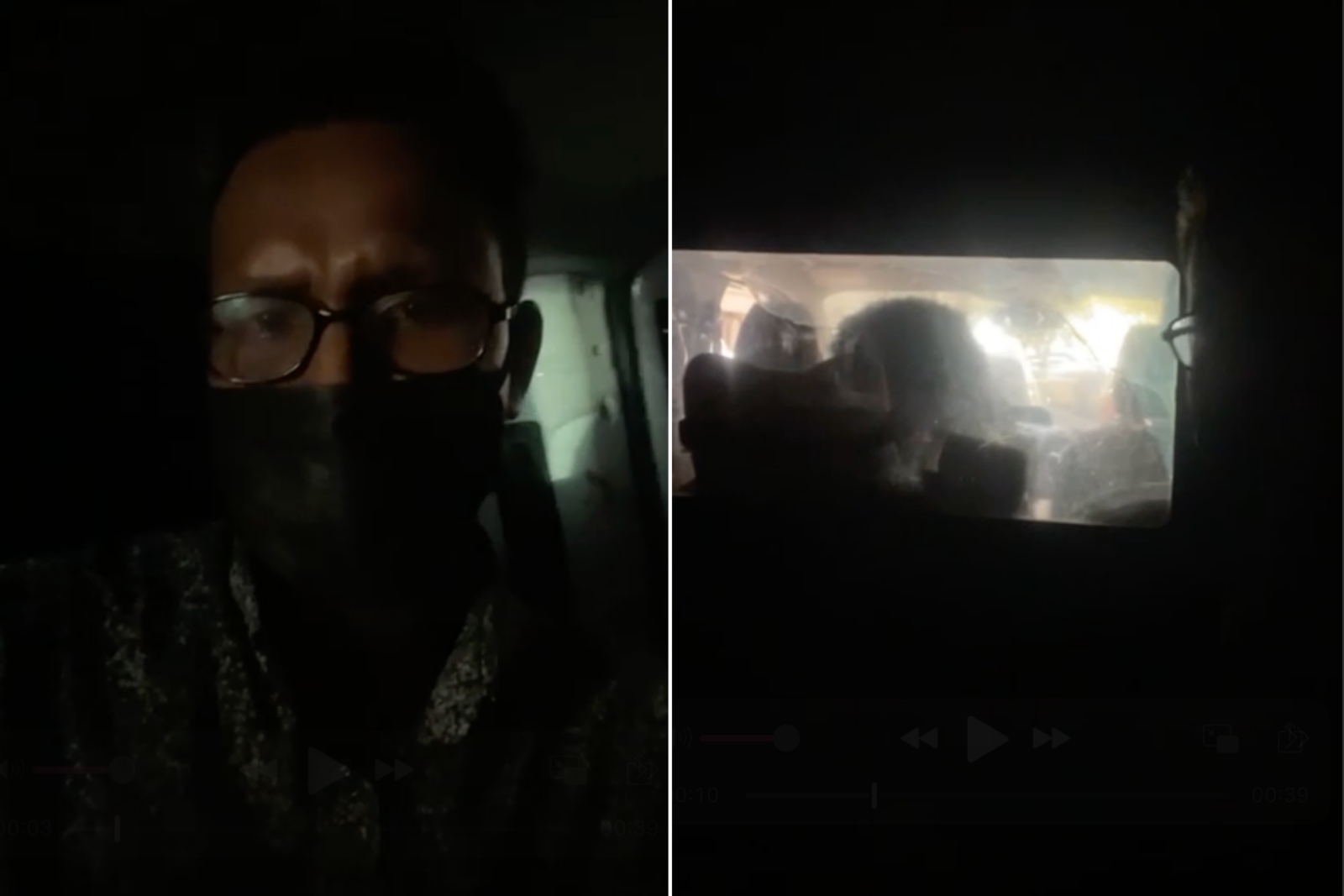
Abdullahi also recalled facing constant intimidation from authorities and feeling the increasing discrimination in Türkiye:
- Police allegedly monitored Abdullahi’s calls, even contacting those who called him to question their intentions. “They would call people back, asking, ‘Why are you going to his restaurant? Why are you calling Mohamed?’” he recounted.
- Mohamed said that officers frequently called him late at night, demanding to know his whereabouts and actions.
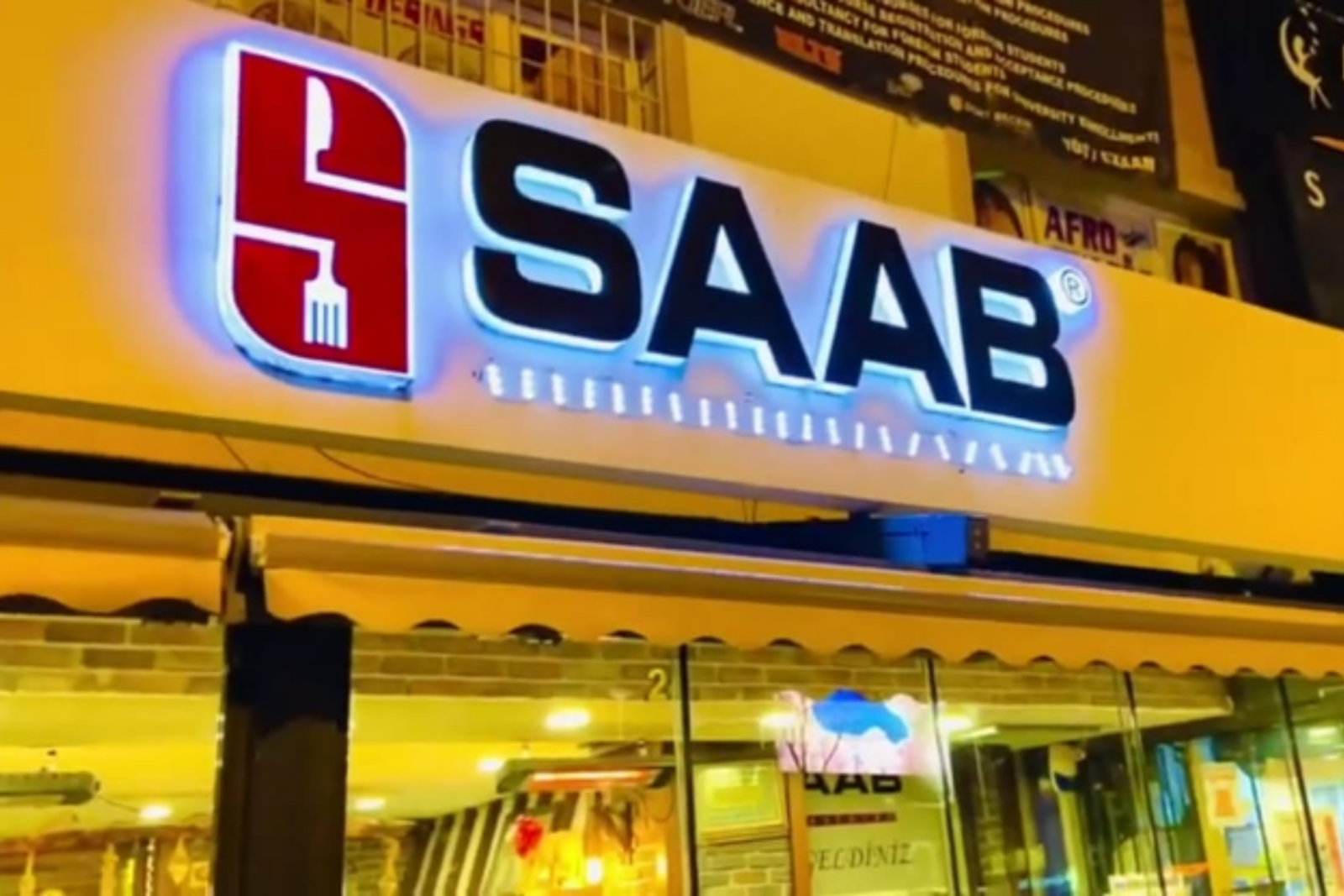
Detention in Kirikkale, decision to leave Türkiye
Before Abdullahi protested the pressures on SAAB Cafe, officials had offered him hope for a stable future.
- Citizenship eligibility: Mohamed claimed that the Directorate of Migration Management had reached out to him to say that he was eligible to apply for Turkish citizenship since he had been living in Türkiye for over 10 years.
- Detained after complaints: Following his public complaints about SAAB Cafe’s treatment, Abdullahi’s situation changed drastically. After just a couple of weeks, he was called and asked to go to the Kirikkale Provincial Directorate of Migration Management – Removal Center.
- Conflicting restrictions: Abdullahi was held for 35 days in October 2022, given weekly check-in requirements, and instructed to remain confined to Kirikkale. Authorities also imposed both a travel ban preventing him from leaving Türkiye and a deportation order, creating a conflicting set of restrictions. “They said I couldn’t leave the country, yet they also issued a deportation order,” he recounted.
- Final decision to leave: By May 2023, after exhausting all legal options and facing relentless pressure, Abdullahi chose to leave Türkiye and return to Somalia, feeling heartbroken about the rising discrimination in Türkiye. Reflecting on his departure, he stated, “Now I’m in Somalia, and honestly, I won’t be coming back to Türkiye as long as discrimination in Türkiye persists.”
- Pursuing justice against discrimination in Türkiye: Abdullahi took legal action in response to the treatment he faced, filing a complaint with the Turkish Human Rights and Equality Authority (TIHEK). While TIHEK initially found no grounds for discrimination, Abdullahi challenged the decision in court.
- Partial resolution: In a landmark ruling, the Ankara 5th Administrative Court acknowledged that Turkish police had engaged in racially motivated discrimination during their enforcement actions against SAAB Cafe. Video evidence presented by Abdullahi showed police officers making discriminatory remarks, confirming a racial bias in their approach.
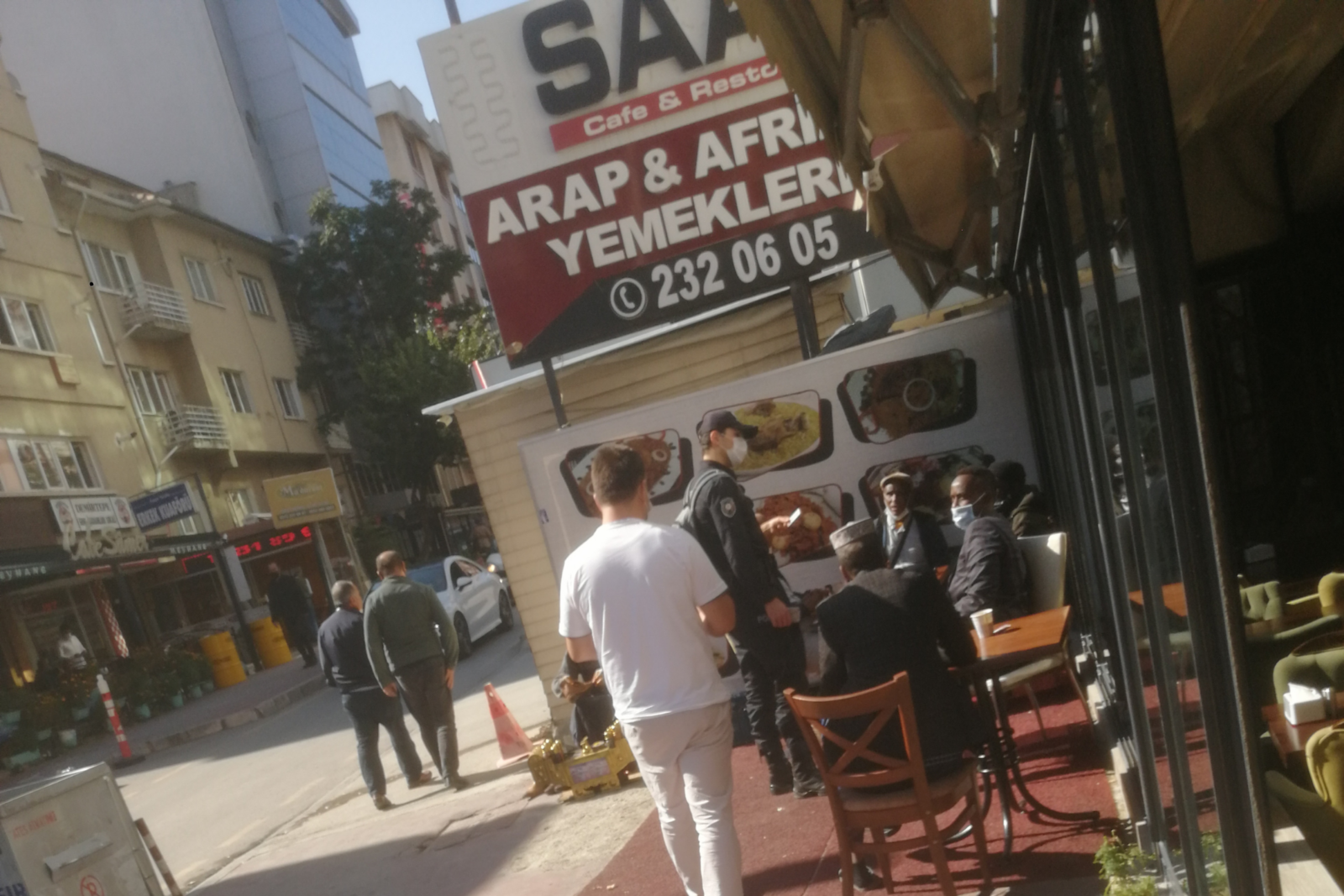
Shifts in social tolerance, rising racial discrimination in Türkiye
When asked about his experience of discrimination in Türkiye since 2012, Abdullahi recalled that he rarely encountered racial prejudice, in his early years; he wasn’t singled out in public nor routinely asked to show identification.
However, as Türkiye’s immigration issues became more pronounced, he observed a significant shift in public attitudes. “Especially after 2020, I couldn’t even walk comfortably in the street,” Abdullahi shared, describing how he began to face hostile remarks, especially from younger individuals.
“Even our neighbors began causing problems,” he explained, noting that shortly after his daughter’s birth in 2020, a neighbor reported his family to authorities over the baby’s crying.
Abdullahi believed that this increase in discrimination in Türkiye could be linked to a combination of economic difficulties, the pandemic’s strain, and statements by certain political figures.
“I’m not sure if it was the economic crisis or comments by far-right politicians that triggered it,” he reflected, alluding to remarks by right-wing leaders that may have fueled public resentment.
Things took a dark turn: These rising tensions reached a boiling point with the 2021 Altindag incident, where local frustrations turned violent against Syrian refugees.
- In August of that year, following the tragic killing of a young Turkish man in a neighborhood dispute with Syrian residents, groups of locals attacked homes and shops belonging to Syrian refugees in the Altindag district of Ankara.
- The incident drew national attention, reflecting a growing social divide and leaving many immigrant communities in Türkiye, including the African diaspora, more concerned about their place in society.
Mesaret Karakaya, Abdullahi’s business partner, had also referred to the Altindag attacks when recounting her own experiences back in 2022, further illustrating how immigrant-owned businesses like SAAB Cafe operated in an increasingly strained environment due to rising racial discrimination in Türkiye.
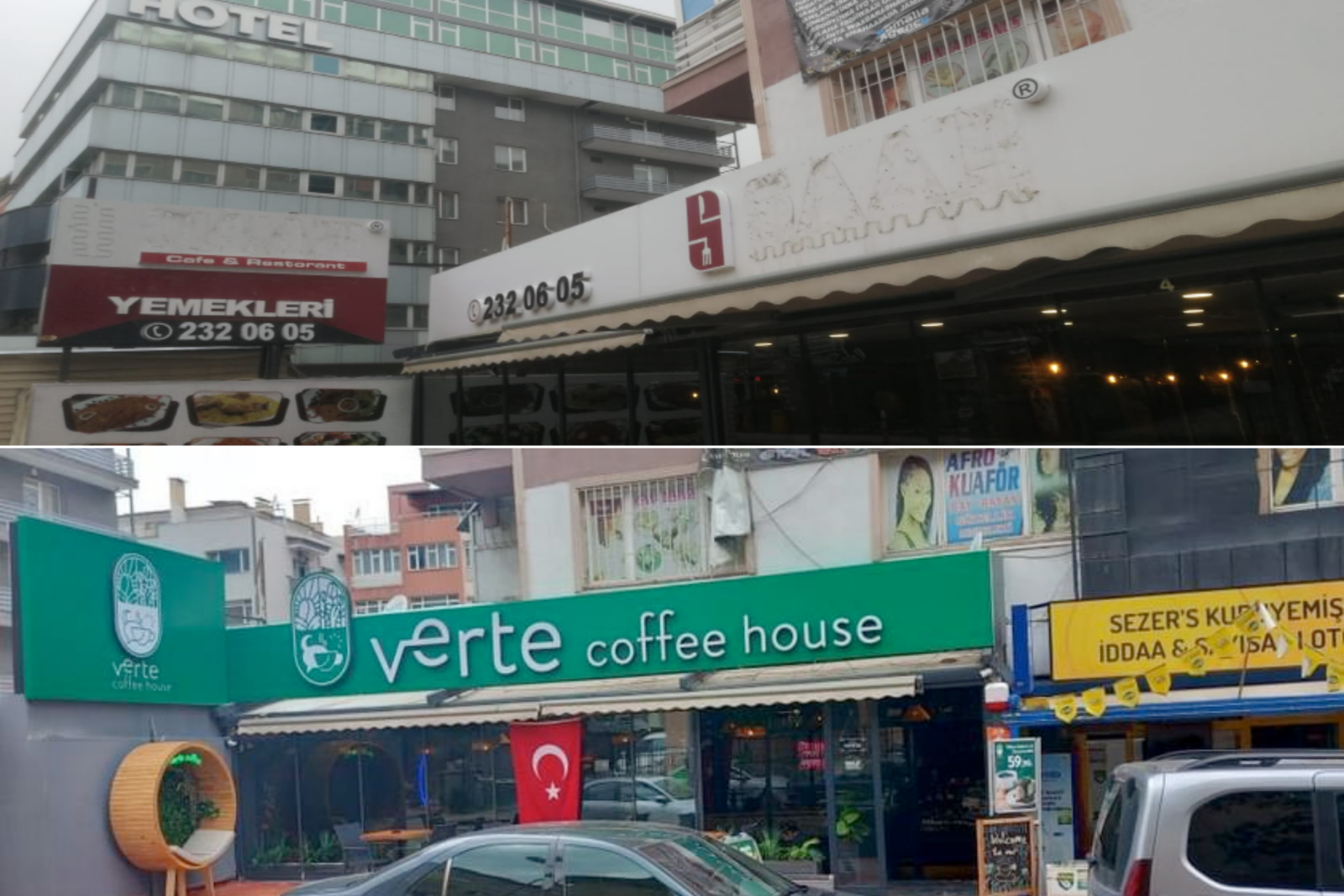
Foreign name returns: New establishment at SAAB Cafe’s former location
Despite Abdullahi’s repeated efforts to adapt SAAB Cafe’s branding, including changing the sign’s colors and responding to pressure over the foreign name, his business ultimately shuttered in 2022.
The authorities had cited the non-Turkish name as a reason for the scrutiny that Abdullahi’s business encountered. However, in October 2024, the location once occupied by SAAB Cafe reopened as “Verte Coffee House,” a new establishment with a foreign name displayed prominently on its sign.
Reacting to the development, Abdullahi called it “institutional racism,” remarking on social media, “They forced us to change our sign and closed down our $100,000 business. Now, in the same place, they’ve opened a new one called Verte Coffee House with a proudly displayed foreign name.”
The story of SAAB Cafe, once a vibrant gathering spot for Ankara’s Somali community, concluded with the establishment’s closure under complex circumstances. Abdullahi, now back in Somalia, remains vocal about his experiences and the increasing racial discrimination in Türkiye.



